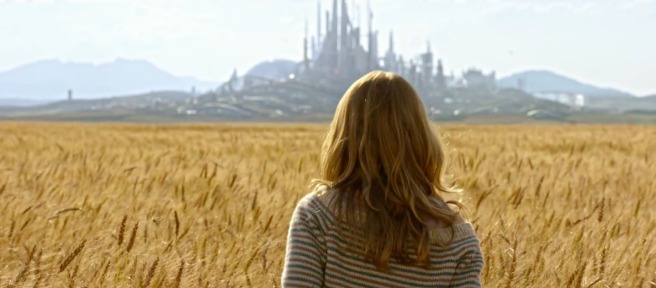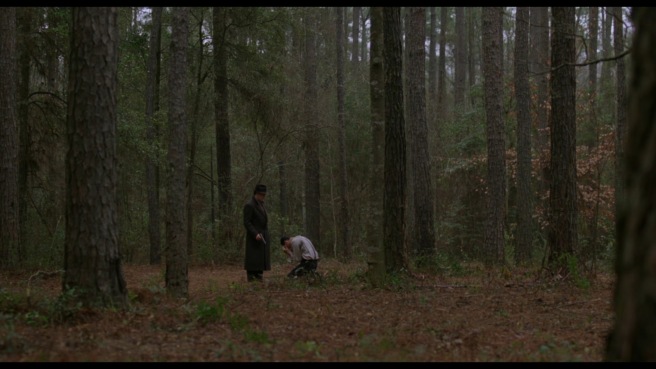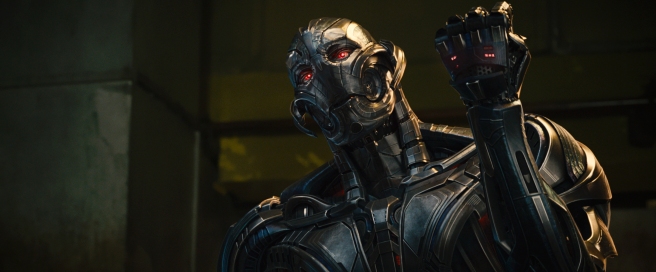Grade: C-
Now and then a movie comes around that transcends the medium of film, that opens up whole new vistas to your imagination, that invites you to consider the world of possibilities that the future holds, and in short, that inspires you to do great things. Disney’s Tomorrowland, opening this weekend, really wants to be that movie.
As with at least one previous movie I reviewed, I got to attend a free advance showing of Tomorrowland by virtue of being a student at UCLA. The movie was a wildcard for me in terms of expectations; the cryptic marketing had me intrigued, but the big budget visuals put me on guard. One factor firmly in the film’s favor was director Brad Bird, the man behind The Incredibles, The Iron Giant, and Ratatouille. His previous work is solid, particularly in the realm of imaginative Disney-type adventures. But Tomorrowland is not Bird at his best.
The basic spoiler-free premise is this: Casey (Britt Robertson), our plucky young heroine with spunk and gumption, finds a mysterious pin whose visions of a futuristic world lead her on an adventure with Frank (George Clooney), a real George Clooneyish kind of fellow who used to be a plucky kid with gumption. That much you’ll get from the trailer. The movie doesn’t unfold quite in that order, but close enough; the rest that you get in the first part of the film is more backstory on Frank. Beyond that I’d have to spoil plot events, but I’m not sure I could paraphrase well either way because the story gets a little screwy. And by “screwy” I don’t mean “cleverly twisted” so much as “ill developed.” The very existence of the eponymous city is perplexingly unexplained, and the story contains enough plot-holes and gloss-overs that the real motivation behind the film’s existence becomes clearer than it ought to be: to hype up a Disneyland attraction and place some products with fancy visuals. Tomorrowland ends up being a giant commercial for Disneyland and a few other brands here and there. Obviously I knew it would be like that, but I thought (and still think) that if the story were good enough I could overlook the self-plugging.
But it isn’t just the spotty plot or the blatant advertising that drags Tomorrowland down. The writing is rather lazy. The dialogue is clichéd and takes advantage of some of my least favorite tropes (like the dreaded “as you know”) and the characters aren’t really fleshed out enough to be identifiable. Frank is the only one who really follows an arc, and it isn’t a justifiable one. Casey from start to finish is nothing more than the optimistic “dreamer,” a term well overused in the movie, and she deserved a more dynamic position than that. Really, she’s our audience surrogate, but she didn’t have to be so little.
And now that I’ve mentioned the word “dreamer,” I am reminded of the main running theme of the film. When Casey is introduced, she is the only optimistic, go-getter type in sight. She’s the kind of person to ask “What can we do about it?” when everyone else is complaining about problems in the world, and her (really vague spoiler ahead) unwavering optimism basically saves the world. It’s a heavy handed and oversimplified statement that practically attempts to argue that realists are the problem. “Dream big and ignore naysayers,” Disney says to our youth, “because if you don’t then the world will end.”
It’s ironic that the message to dream big comes up in a film so rooted in the past and present, both within the film’s imagery and within the film’s style. The futuristic city of Tomorrowland ought to have a “yesterday” prepended to it; with flying cars, jetpacks, and funny architecture being our main indicators of the technological advancement of this world, the place is one sassy robot maid away from an episode of the Jetsons. Today it isn’t the dreamers of the future that would be at home in Yesterdaytomorrowland; it’s those nostalgic for what the future used to represent. The film to a certain extent acknowledges that, but somehow still misses the opportunity to examine a more current conception of the future. And on the other front, I’d like to believe that a dreamer filmmaker could try a little harder to produce good dialogue, good characterization, and good story development, and not simply rely on the Hollywood standard of big CGI and predictability. This movie telling you to dream big is like that fat middle school gym teacher making you run laps while he sits in a lawn chair.
A few qualifiers are in order: I’ve criticized the CGI on a matter of principle, but the film really is pretty. I said that Tomorrowland’s perspective of the future should be more current, but the old quasi-Jetsons imagery is aesthetically pleasing on its own. Some of the character interactions were quite charming even if they were simplistic. And though I felt the relevant exposition was clunky, the twists of the last act were pretty interesting. I want to make a special point of praise to Matthew MacCaull (whom I looked up just to name here) for playing a hilariously menacing evil henchman. Finally, I should add for the sake of anyone who doesn’t know me that I am both a scientist and a cynic; naturally, in retrospect, Tomorrowland was going to be a hard sell for me. Any movie that plays this fast and loose with physics alienates my scientist side and any movie that declares “dreaming” to be a valid cure for the world’s problems alienates my cynical side.
So there it is. You can probably take a pass, but if you’re the right kind of idealist Tomorrowland might even inspire you to do something great. Or maybe just to buy season tickets to Disneyland.
tl;dr: For a movie whose central message is “dream big,” Tomorrowland dreams pretty small.



